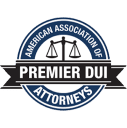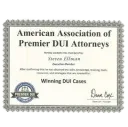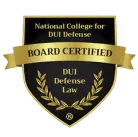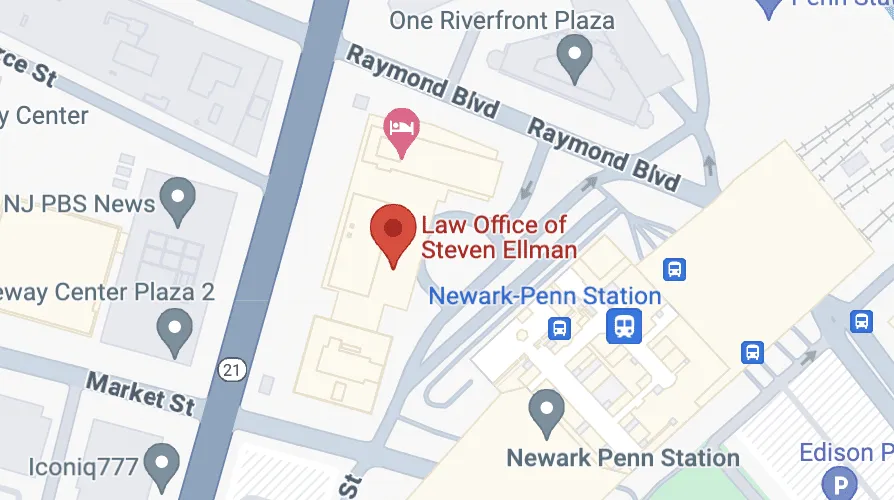Navigating DUI Charges in New Jersey: Essential Information
Discover key insights about DUI laws in New Jersey. Protect yourself with knowledge and stay ahead. Dive in now for vital information and guidance!
Are you among the 26,500 New Jersey residents who have been arrested for driving under the influence (DUI) this year, according to Valley Spring Recovery?
DUIs are a serious crime in New Jersey. If you are charged with a DUI, you may feel scared, confused, or overwhelmed.
It is important to stay calm and take the right steps to protect yourself. Read on for our DUI New Jersey guide that explains everything you need to know if you are facing DUI charges in the Garden State.
What Is a DUI in New Jersey?
A DUI in New Jersey means driving under the influence of the following:
- Alcohol
- Drugs
- A combination of both
If your blood alcohol concentration (BAC) meets or surpasses the threshold of 0.08%, it’s imperative to know that you can be arrested for drunk driving. For commercial drivers, the legal limit is even lower: 0.04%. If you are under 21 years old, any alcohol in your system is considered illegal.
Even if your BAC is still within the legal limit, you can be charged if your driving is impaired. Police officers can arrest you based on your behavior, appearance, or how you speak and move.
Breathalyzer Laws NJ
Breathalyzer laws in NJ are very strict. If a police officer is under the impression that you have been drinking and asks you to take a breath test, you must comply. It is called “implied consent.”
By driving on New Jersey roads, you automatically agree to take breath tests if asked. If you refuse a breathalyzer, you can still be charged. Refusing the test leads to separate penalties. For a first refusal, you may lose your license for 7 to 12 months and pay fines of $300 to $500.
You must also attend an alcohol education program. On top of that, a court will require you to alter your vehicle by installing an ignition interlock device (IID).
For second and third refusals, the penalties become even harsher. You could face longer license suspensions, higher fines, and mandatory jail time. Refusal does not protect you from a DUI charge, and in many cases, it can make your situation worse.
Drunk Driving Penalties NJ
Drunk driving penalties in NJ are some of the toughest in the country. These penalties depend on several things:
- Your BAC level
- Whether it is your first, second, or third offense
- Whether there were injuries, damage, or other crimes involved
First Offense
What happens if your BAC is between 0.08% and 0.10%? You can expect the following:
- Fine: $250 to $400
- Up to 30 days in jail
- Mandatory time at the Intoxicated Driver Resource Center (IDRC)
- Ignition Interlock Device for 3 months
First Offense with BAC Over 0.10%
What happens if your BAC is above 0.10%? You can expect the following:
- Fine: $300 to $500
- License suspension until the IID is installed
- IID required for 7 months to 1 year
- Same IDRC and possible jail time
Second Offense
A second offense will come with even harsher ramifications. Here’s what could happen:
- Fine: $500 to $1,000
- Jail time: 48 hours to 90 days
- 1 to 2 years’ license suspension
- 30 days of community service
- IDRC program
- IID for 2 to 4 years
Third Offense
A third offender will face even stricter punishments. Here are the possibilities:
- Fine: $1,000
- 180 days in jail
- 8-year license suspension
- IDRC program
- IID for 2 to 4 years
- Possible rehab program
These penalties show how seriously New Jersey treats drunk driving. Even a first offense can have a major impact on your life.
DUI Consequences
The consequences of a DUI go far beyond the courtroom, and they can affect your daily life for years. Here are some of the most common problems people face after a DUI:
1. Employment Issues
Some employers may fire workers who are arrested for DUI, which is especially true for jobs that involve driving, safety, or working with children. A DUI conviction on your record can make it harder to get a job in the future.
2. Higher Car Insurance Rates
After a DUI, your car insurance company will likely increase your rates. Some companies may even cancel your policy. You may be labeled a high-risk driver, which means you’ll have to pay much more for coverage.
3. License Suspension
Losing your license makes it hard to go to work, school, or run errands. You may have to depend on family, friends, or public transportation. In some cases, you may qualify for a restricted license, but only if you meet strict rules.
4. Personal and Family Stress
A DUI arrest can cause embarrassment, guilt, and stress. Your family may worry about the future, your finances, and your behavior. Relationships can be damaged, especially if you are dealing with alcohol problems.
The Role of a New Jersey DUI Attorney
One of the best steps you can take after a New Jersey DUI arrest is to hire an attorney. A lawyer who focuses on DUI cases understands the law and can protect your rights. Your lawyer will explain what to expect, review your case, and build a strong defense.
A skilled DUI attorney may be able to:
- Challenge the breathalyzer results
- Question the reason for the traffic stop
- Point out mistakes made by police
- Negotiate for lower penalties
- Help you avoid jail or long license suspensions
Having legal support can make a big difference. Your New Jersey DUI attorney will walk you through each step and fight for the best outcome.
DUI Defense Strategies
There are many DUI defense strategies that your lawyer might use. The best defense depends on your case. Here are some common DUI strategies:
1. Illegal Traffic Stop
The police could have had no legal reason to stop you. Your lawyer might ask the court to dismiss the case.
2. Faulty Breath Test
Breathalyzer machines can fail or give false readings. If the machine was not calibrated or maintained correctly, the results might not be valid.
3. Improper Police Procedures
If the police did not follow the right steps, your rights may have been violated. It could lead to parts of the case being thrown out.
4. Medical or Physical Conditions
Certain health problems, like acid reflux or diabetes, can cause false positives on breath tests. Your lawyer might bring in a doctor to explain your condition.
5. Challenging Field Sobriety Tests
Field sobriety tests can be hard for anyone, even if they are sober. Your lawyer might argue that your poor performance was due to nerves, poor weather, or a medical issue, not alcohol.
Underage and Commercial Drivers
New Jersey has special rules for underage drivers and commercial drivers. If you are under 21 and caught with any alcohol in your system, you can be charged. Penalties include:
- License suspension: 30 to 90 days
- 15 to 30 days of community service
- Alcohol education classes
For commercial drivers, the BAC limit is only 0.04%. A DUI charge can lead to:
- Loss of a commercial driver’s license
- Job loss
- Serious fines and possible jail time
A DUI can end a commercial driving career, which is why it’s very important for commercial drivers to know the law.
Ignition Interlock Devices (IID)
An ignition interlock device (IID) is a breathalyzer that is installed in your vehicle. You must blow into it before the car will start. If you have alcohol on your breath, the car won’t start.
In New Jersey, an IID is required for most DUI offenses. The length of time depends on your BAC and whether it is your first, second, or third offense. Failing to use the IID or trying to bypass it can lead to more penalties.
Expunging a DUI in New Jersey
Many people ask if they can remove a DUI from their record. In New Jersey, a DUI is considered a traffic offense, not a criminal offense. However, this also means it cannot be expunged.
The DUI stays on your record permanently. It is another reason why hiring a lawyer and fighting the charges is so important.
Final Tips and Takeaways
Getting a DUI in New Jersey is serious. It can change your life in many ways. But you are not alone. By taking the right steps, you can limit the damage and move forward.
Always speak to a New Jersey DUI attorney as soon as possible. A lawyer can give you advice that protects your rights and helps you avoid common mistakes.
Never skip court dates or ignore court orders because this can lead to more legal trouble and possible arrest. Be honest with your lawyer so they can build the best defense. The more details you share, the better they can help you.
Follow all license suspension rules and IID requirements. Breaking these rules can increase your penalties.
Attend any required alcohol education or rehab programs. These programs not only meet court requirements but also help you learn and grow from the experience.
Learn from the situation and take steps to avoid future problems, such as avoiding risky social situations, finding a designated driver, or getting help if you struggle with alcohol use.
DUI New Jersey Cases Require a Top Attorney
DUI New Jersey cases can have major impacts on your life. In order to have the best possible outcome, it’s vital to get legal help as soon as possible.
Are you searching for the finest DUI attorney in New Jersey? Contact the Law Office of Steven Ellman so we can start working on your case. Steve Ellman has been helping New Jersey residents with DUI and DWI charges for over 39 years, so you can count on his expertise.














